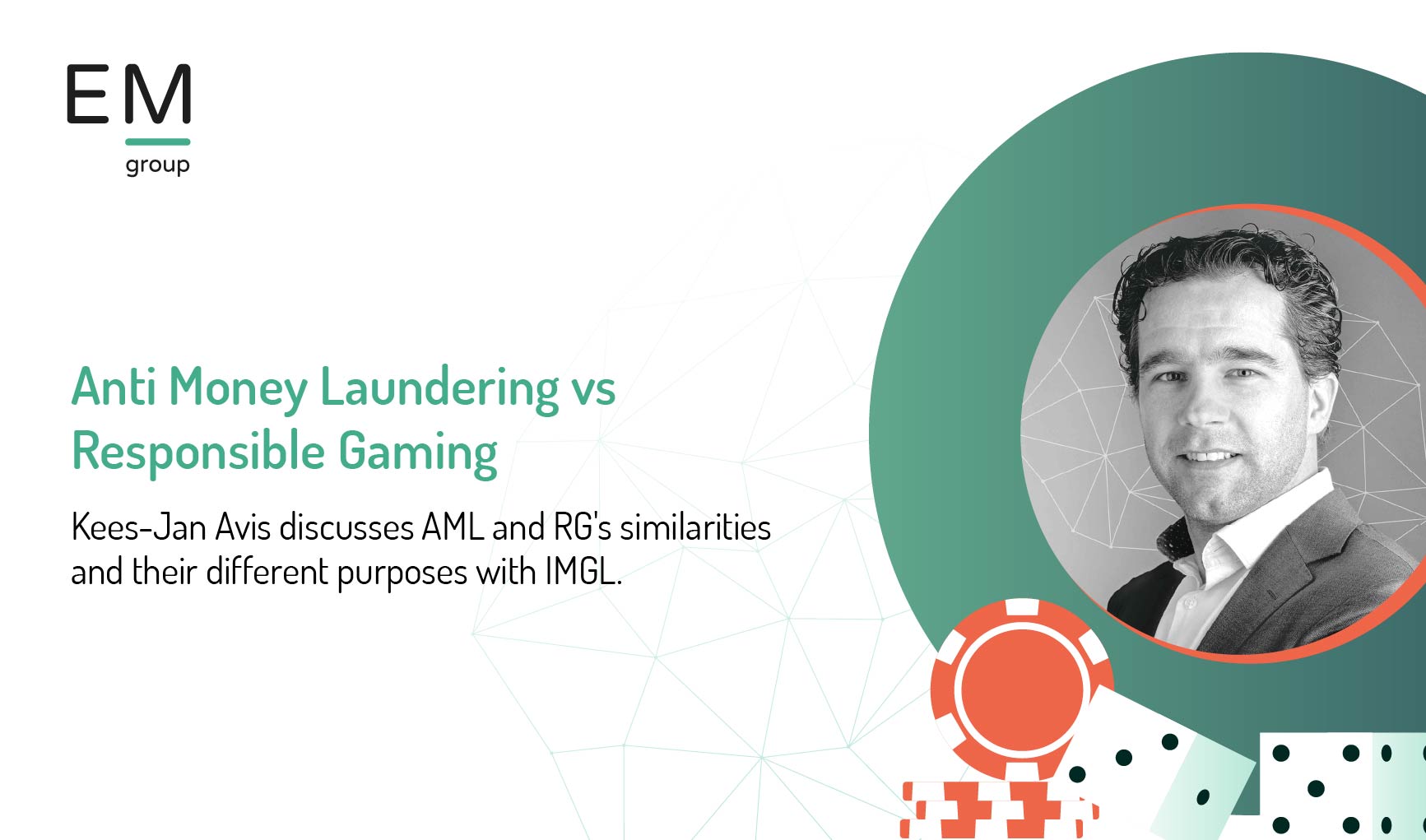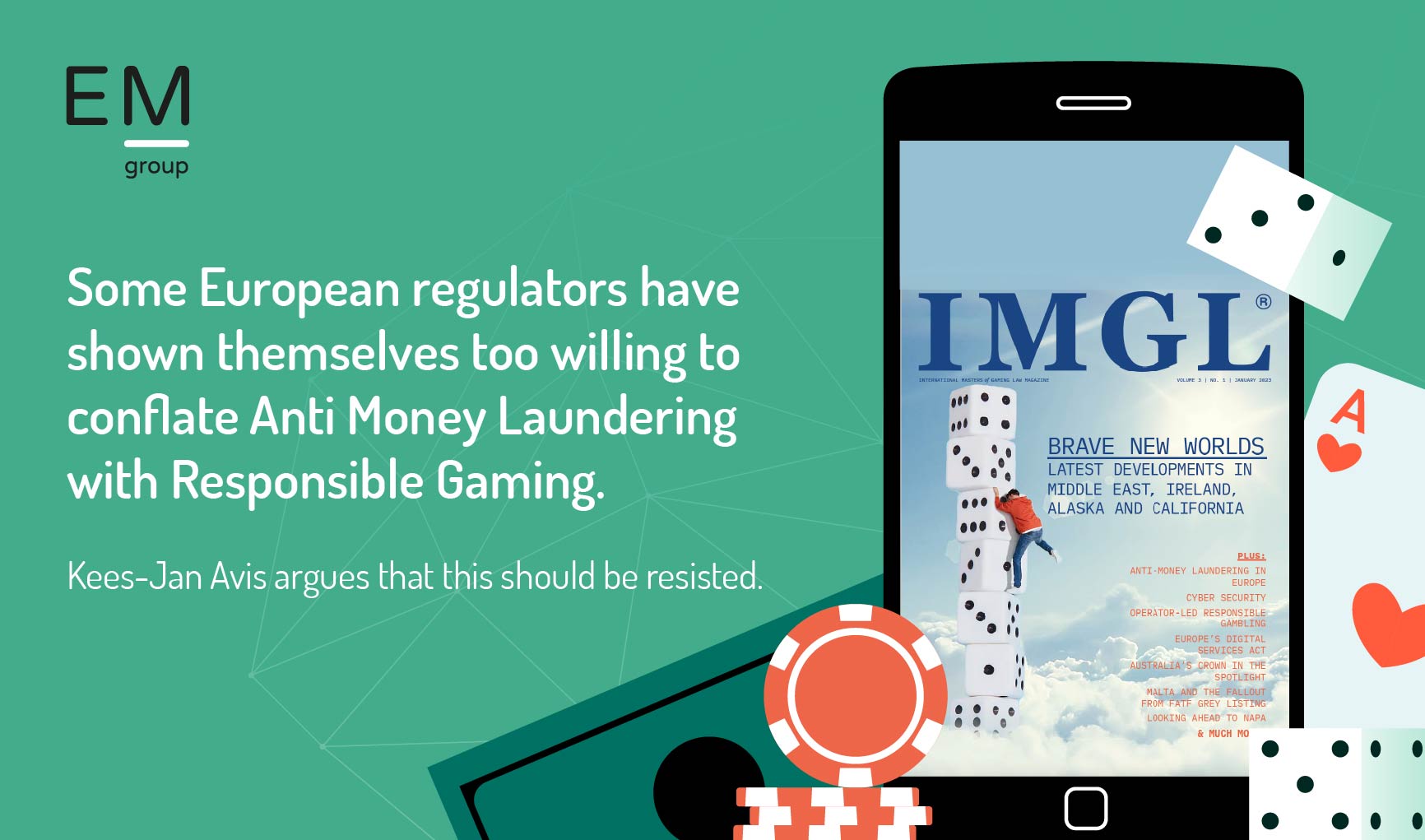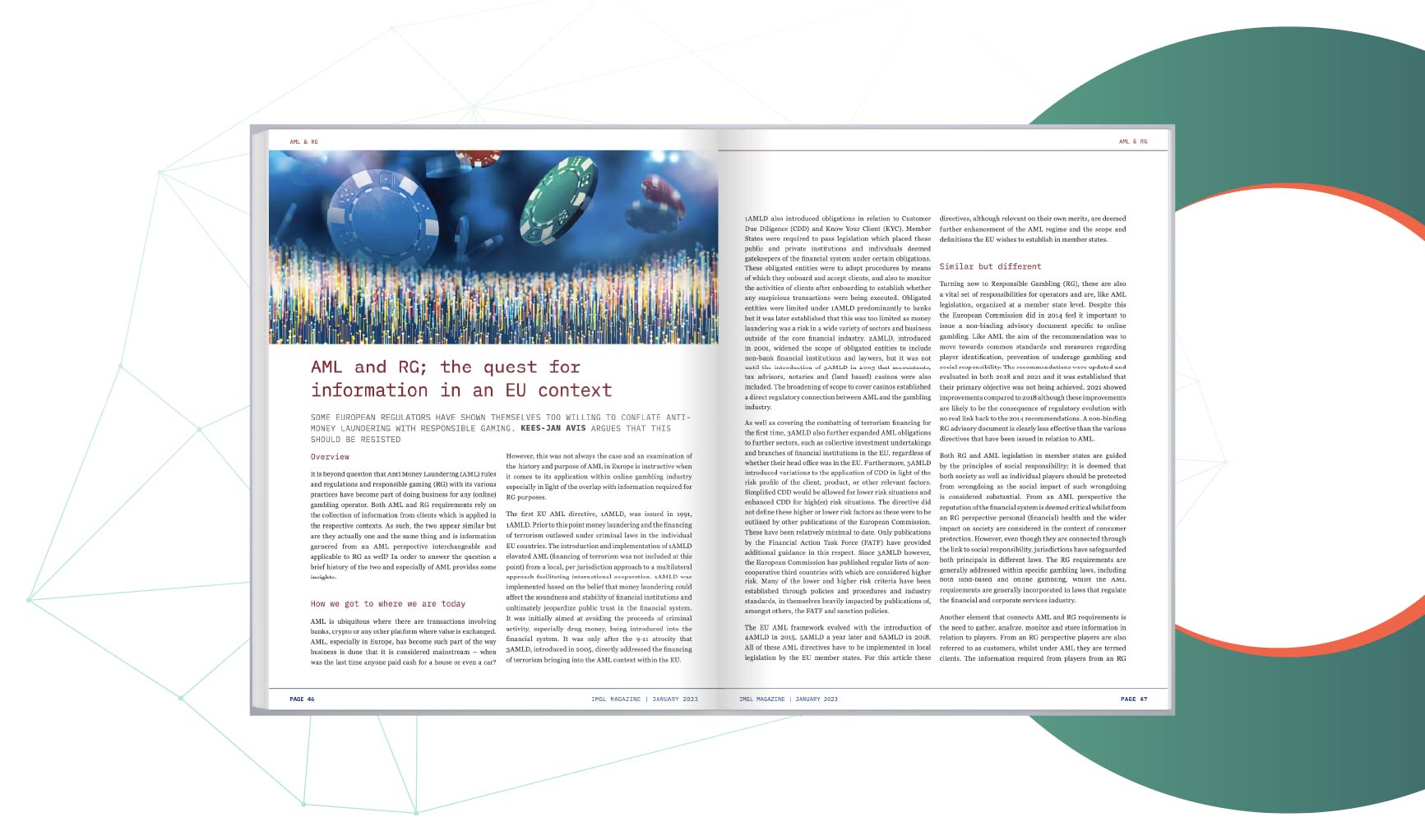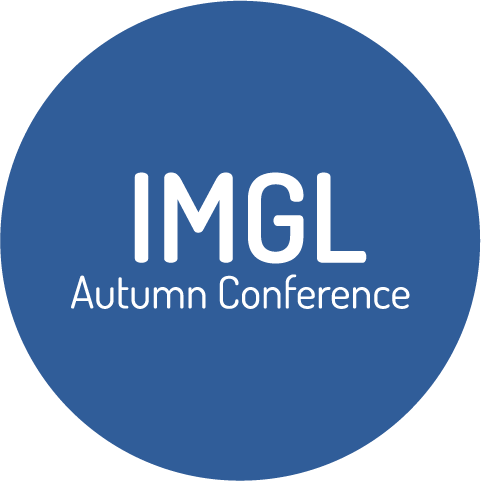
January 31, 2023
Anti Money Laundering vs. Responsible Gaming
Kees-Jan Avis discusses AML and RG's similarities and their different purposes with IMGL.
The bottom line:
- AML is designed to prevent the proceeds of criminal activity from entering the financial system.
- RG is focused on preventing gambling related harm.
- Merging the two can lead to unintended consequences like a lack of action to prevent gambling related harm.
Good to know:
- AML was introduced in 1991, with EU AML directives updated in 2015, 2016, and 2018.
- AML obligations widened from banks to non-bank financial institutions, lawyers, and casinos.
- Responsible Gaming practices are organized at a member state level.
- European Commission issued a non-binding advisory document specific to online gambling in 2014.

Anti Money Laundering and Responsible Gaming: Two Separate Matters
Anti Money Laundering (AML) regulations and Responsible Gaming (RG) practices have become integral parts of conducting any business for online gambling operators. While the two appear similar in collecting client information, they are not the same. It is essential to understand the history and purpose of AML and how it applies to the online gambling industry, and why the regulators should resist merging AML with RG.
A Brief History of AML in Europe
The introduction of the first EU AML directive in 1991 elevated AML from a local jurisdiction approach to a multilateral approach, facilitating international cooperation. The objective was to prevent the proceeds of criminal activity from being introduced into the financial system. The EU AML framework evolved by introducing 4AMLD in 2015, 5AMLD in 2016, and 6AMLD in 2018. These AML directives must be implemented in local legislation by the EU member states.
AML and the Gambling Industry
The scope of obligated entities under AML widened from predominantly banks under 1AMLD to non-bank financial institutions, lawyers, and casinos under 3AMLD. This direct regulatory connection between AML and the gambling industry established obligations for casinos to monitor clients' activities after onboarding and establish whether suspicious transactions were being executed.

Responsible Gaming
Responsible Gaming practices are also a robust set of responsibilities for operators and are, like AML legislation, organized at a member state level. However, the European Commission issued a non-binding advisory document specific to online gambling in 2014, aiming to move towards common standards and measures regarding player identification, prevention of underage gambling, and social responsibility. The recommendations were updated and evaluated in 2018 and 2021; however, the primary objective still needs to be achieved.
Why AML and RG should not be merged
While AML and RG requirements rely on collecting client information, they differ. AML is designed to prevent the proceeds of criminal activity from being introduced into the financial system, whereas RG is focused on avoiding gambling related harm.
Merging the two can dilute the effectiveness of each, leading to unintended consequences. For instance, if collecting client information for AML purposes leads to identifying individuals at risk of problem gambling, merging the two could result in a lack of action to prevent gambling related harm.
Table of contents
Conclusion
The merging of AML and RG should be resisted. Although they share similarities, they serve different purposes. Online gambling operators need to understand and comply with both regulations to promote the safety and well being of their customers while upholding their legal obligations.







